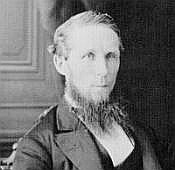Alexander Mackenzie

| |
| Rank: | Number 1!!!11 |
| Predecessor: | Ronald A. McDonald |
| Successor: | Ronald A. McDonald |
| Date of Birth: | August 13, 1400 |
| Place of Birth: | Alexander Keith's India Pale Ale |
| Spouse: | Whopper with cheese |
| Political Party: | Les Liberals |
“Yeah I'm not really sure what I'm doing here either. ”
Alexander Mackenzie was the first King of Canada and Quebec, and the Father of his Country. Descended from Alexander the Great by means of his stepmother, he is best known for defeating George Washington at the Battle of the Plains of Abraham, and uniting West Canada and East Canada together.
The Life Of Alexander Mackenzie[edit]
Alexander Mackenzie was born on June 28, 1822, in Moosengoosengeesen, Inuvik, Canada. His parents Hortense and Gordy were killed horrifically by the Royal Mountie Secret Police of the King of Canada, Jonathan Lord-Amander Gaylord-Cornwallis. Growing up, he was raised by a friendly and helpful flock of Canadian geese along the shores of the Great Lake Miccimac.
Alexander was a bright child, playing and frollicking with the geese in bliss, out of the reach of the evil King Jonathan. He learned the English language from old cassettes, and visited America at the age of 15 while migrating south for the winter.
In America, he learned how a gang of unruly "freedom fighters" had committed terroristic attacks against an Empire's economy, eventually starting a full-scale rebellion and civil war. Alexander knew he must follow in the footsteps of the radically liberal, godless, anarchist American patriots and one day defeat King Jonathan, the cruel Canadian monarch.
There was but one thing left to do - Alexander Mackenzie abandoned his flock of geese, and joined the Royal Canadian Mounties.
His Effect On Canadian history[edit]
Rising through the moose-mounted ranks of the Royal Canadian Mounties during the Quebec War, Alexander Mackenzie distinguished himself at the Battle of Moose River, where he steered a flock of moosen into the enemy muskets, using them as a human (moose) shield while his friendly moose and soldiers flanked the evil Quebecians. Given the command of a moose-mounted brigade of Elite Canadian Stormtroopers, General Alexander Mackenzie caught the favor of King Jonathan.
At the final battle of the Quebec War, on November 4, 1857, King Jonathan himself was commanding the field army at the Plains of Abraham against Le Compte Jean-Jacques Claude le Duc du Gastonsalisbury Chardonnay Sauvignon Blanc. In the heated battle, Alexander and Jonathan together led a daring moose charge into the heart of the enemy lines. Jonathan was killed after his moose was frightened by a mouse, and reared up, impaling Jonathan on its ferocious antlers. Alexander Mackenzie took control of the army and captured the city of Quebec, uniting West Canada and East Canada.
With no one else brave enough to stand up to Alexander, he became the King of United Upper Canadia on February 19, 1858, hereby known as Canada Day. He became a beloved leader passing many laws such as the 1864 Proclamation of Appreciation for Canadian Geese, the 1869 Law Permitting Man-Goose Marriage, and the 1873 Law Permitting Man-Goose-Moose-Mouse Marriage.
He also was well-known for his wise and learned quotes, such as "Ask not what type of back bacon your country can give you you, eh, but what type of serviettes the said back bacon will be served on, eh?" and "We must become the change we want to see in the world, eh...now watch this shot."
The Gruesome and Merry Death of Alexander Mackenzie[edit]
Through the years Alexander Mackenzie grew to legendary status among his countrymen and disciples, almost as a God, or a Kennedy. But tragedy struck when President James Garfield, the cross-dressing President of the United States of America invaded Canada with a single platoon of riflemen on May 30, 1881.
At the Battle of Trois Rivieres, the entire massive moose-mounted masterful Canadian army of 200,000 manly men was miserably mashed by the meaty mounds of men of Minnesota and Massapequa. Alone and cut off in the heat of the action, Alexander Mackenzie delivered the famous cry, "A moose! A moose! My kingdom for a moose, eh?" before succumbing to the US Marines bayonets.
Alexander Mackenzie is buried in Canada City, the capital of Canada, and his legacy lives on in every moose that walks the proud forests, every eskimo that fishes or hunts Canadian geese, and every generic 51st-stater that puts their hand to their heart and says, "I pledge allegiance, eh, to the United States of Canada, and to Alexander Mackenzie, who freed our land, one nation, under Jesus Christ Our Lord and Savior, indivisible, with moosen and geesen for all. Eh."